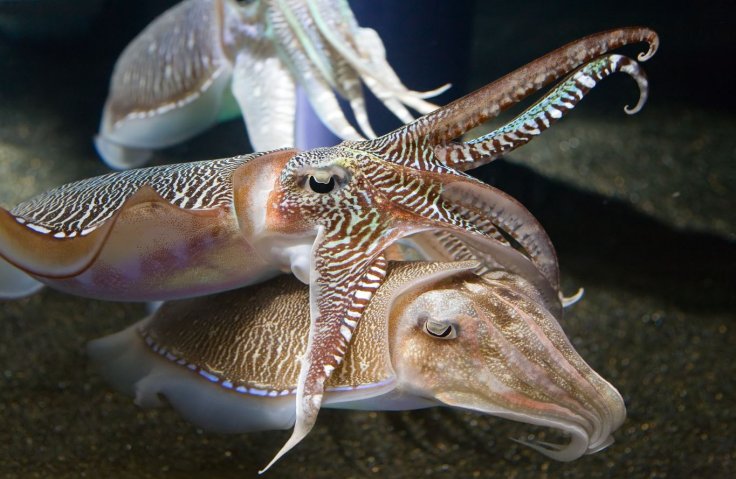Can animals decide on holding back on one meal in order to enjoy their favourite food during their next? Well, it seems so. A new study claims that when cuttlefish are aware that their favorite food—shrimp— will be available in the evening, they gorge on fewer crabs during the day. The ability to arrive at a decision due to future expectations exhibits complex cognitive abilities.
"It was surprising to see how quickly the cuttlefish adapted their eating behaviour - in only a few days they learned whether there was likely to be shrimp in the evening or not. This is a very complex behaviour and is only possible because they have a sophisticated brain," said Pauline Billard, a PhD student in the University of Cambridge's Department of Psychology and Unicaen, France, and first author of the report.
Adaptive eating behavior
Cuttlefish foraging behaviour can be described as either selective or opportunistic. Observing the European common cuttlefish, Sepia officinalis, when the researchers reliably provided one shrimp every evening, the cuttlefish became more selective during the day and ate significantly fewer crabs. But when they were provided with evening shrimp on a random basis, the cuttlefish became opportunistic and ate more crabs during the day.

Random provision of evening shrimp meant that the cuttlefish could not predict whether their favourite food would be available for dinner each day, so they made sure they had enough to eat earlier in the day. When conditions changed, the cuttlefish changed their foraging strategy to match.
Shift eating strategy
The researchers saw the animals quickly shift from one eating strategy to another based on their experience. By learning and remembering patterns of food availability, the cuttlefish optimise their foraging activity not only to guarantee they eat enough - but also to make sure they eat more of the foods they prefer.
Cuttlefish eat a wide range of food including crabs, fish and squid, depending on what is available. Despite such a generalized diet, they show strong food preferences. To test this, the researchers tested twenty-nine cuttlefish five times a day, for five days, by putting crab and shrimp at an equal distance from the cuttlefish at the same time and watching what they ate first. All showed a preference for shrimp.
Capable of remembering things
Animals must constantly adapt to changes in their environment in order to survive. Cuttlefish hatch with a large central nervous system, which enables them to learn from a young age. They are capable of remembering things that happened in the past and using this information to adjust their behavior in anticipation of the future.
Cuttlefish are a type of cephalopod. In evolutionary terms, cephalopods and vertebrates diverged around 550 million years ago, yet they are remarkably similar in the organisation of their nervous systems.
"This flexible foraging strategy shows that cuttlefish can adapt quickly to changes in their environment using previous experience," said Professor Nicola Clayton in the University of Cambridge's Department of Psychology, who led the study. "This discovery could provide a valuable insight into the evolutionary origins of such complex cognitive ability."
(With inputs from agencies)









